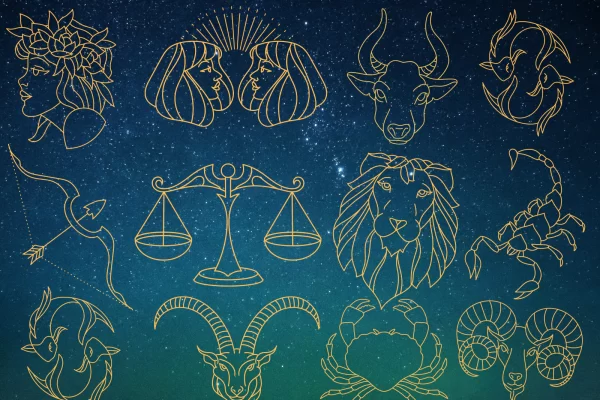Bright Star: a love story over preconceptions and death
Bright Star, the Neozelander director Jane Campion’s film, arrived in Italian cinemas in 2009. It is a tender love story that, in spite of the preconceptions of that time and the early death of the young poet, resounds lively and authentic even today.
The title of the film chosen by Jane Campion quotes the title of Keats’s sonnet “Bright Star” written during his relationship with Fanny Brawne. The film magnificently interpreted by Ben Whishaw as John Keats and the beautiful Abbie Cornish as Fanny Brawne, tells about the young English poet’s love story with the eighteen-year old Fanny Brawne. The director Jane Campion, which we remember for the movie “The Piano” (1993), skilfullydepicts London’s suburbs, and with great details gives to the public the perfect image of daily life, of customs and traditions of the society of that time.
The story is set in 1818 in the two-family house, Wentworth Place , in Hampstead Village, situated in London’s suburbs. Charles Brown, Keats’s friend, shares a side of the house with the Dilke family. Charles immediately becomes friend with all the members of the family, composed by Mrs Brawne and her three children. At once, Jane Campion highlights the conflicted relationship between CharlesBrown and the eldest of the children, Fanny, whom he considers lacking of morality and intellectual sensitivity.
After the death of his brother Tom, Keats moves to Wentworth. at his friend Charles Brown’s house. In this period Keats meets Fanny Brawne. At the beginning they are not attracted by each other, something changes and for both of them something clicks.
Immediatelytheir relationship appears complicated, not because of the incompatibility of their personalities, which they do not perceive, but because of external influences. Keats is poor and Fanny’s mother believes that their story cannot have a future; Keats is not economically independent and by publishing his works he does not succeed inearning enough and he cannot support her daughter. In addition to the familiar obstacle, the young lovers must also block the constant attacks of Keats’friends, who consider Fanny very lousy, not equal to Keats.
 Funny however has a determined and talented personality, just like Keats. She does not want to collapse under criticism and persuades his lover to educate her to poetry. Keats gives her lessons in poetry and the tie between them becomes stronger in spite of the constant obstacle of his friend Charles. In the film the director Jane Campion underlines this conflict and gives space to continuous quarrels between Charles and Fanny, to insults addresses to Fanny in the presence of Keats.
Funny however has a determined and talented personality, just like Keats. She does not want to collapse under criticism and persuades his lover to educate her to poetry. Keats gives her lessons in poetry and the tie between them becomes stronger in spite of the constant obstacle of his friend Charles. In the film the director Jane Campion underlines this conflict and gives space to continuous quarrels between Charles and Fanny, to insults addresses to Fanny in the presence of Keats.
Maybe Charles is attractedby whom he considers superficial and malicious, or perhaps he is simply jealous of her. Jealous of her, because Fanny has caught Keats’s attention and because he loves spending his spare time not with his friend Charles any longer but with his bright star. Charles would like to have Keats for himself, he loves his poetry, and in the movie he confesses that he considers him better than himself,underlines that his life without Keats’s poetry is an empty life.
According to Charles, Keats should dedicate only to poetry, Fanny is a carelessness, a discordant note in his friend’s life, but Keats does not think like that. In the movie Keats tells his friend Charles, to let him admire Fanny as often as he wishes and to leave them alone more often because she is the source of his inspiration and because she gives him rapture and happiness; never like in that period his pen had been s so profitable. The scenery depicted by the director is the same as the couple’s mood. Their love was born in spring, when the nature bursts like Keats’s creativity, which in that period of strong passion, allows him to write the most beautiful works of his life.
Fanny is Keats’s muse, the nature fascinates him and Jane Campion managed skilfully to catch these magical moments of these combinations in Keats’s creativity. How most people say, this is a movie about love and poetry. Love is Life in Keats’s thought but in the same time it is also a heartbreak. Keats lives as in a dream. He enjoys rapture of love but suffers terrible pains because he knows that he will not enjoy it fully. He is a doctor, and at the first fit of coughing, he understands that the end of his life will not be long in coming. He feels that happiness is sliping out of his hands, he, who was never involved with women, now discovers something precious, something for which it is worthwhile to live, life-blood for himself and for his poetry.
.jpg) When Keats’s health starts getting worse and Charles will be forced to rent his part of the house to pay his debts during the summer, Mrs Brawne will look after Keats and she will host him in her house. Mrs Brawne, to whom Keats will remain deeply grateful until the end of his life, will give her consent to the engagement of the lovers, even because maybe she suspects that Keats’s life is really precarious. In spite of the illness, the lovers try to imagine a life together and they plan their future almost to ward off the inevitable. But the spell of a future together beaks when Keats’s friends and doctors suggest the he leaves London and moves to Italy to search a mildest winter temperature. The information devastates Keats and Funny, but Keats cannot oppose the decision of his friends who, with great affection and devotion, collect founds for his travel, room and board in Rome. The day of Keats’s departure, the lovers decide not to say goodbye, not to turn to look at each other, and so they do not. When Keats arrives in Rome, he decides not write to Fanny yet, but for a short time only to Fanny’s mother, Mrs Brawne. Keats believes that it is wrong to tie her to himself, to tie the Life to a moribund; because Fanny is Life, she is a happy and joyful girl. She has a right to reconstruct her life with another person, as he is unable to fulfil the promise of their engagement. After their separation, Fanny does never stop to write him letters, but Keats will not open not even one and will even ask his friends to burn all her letters after his death; his friends hurry to satisfy his wish with devotion and awaited diligence.
When Keats’s health starts getting worse and Charles will be forced to rent his part of the house to pay his debts during the summer, Mrs Brawne will look after Keats and she will host him in her house. Mrs Brawne, to whom Keats will remain deeply grateful until the end of his life, will give her consent to the engagement of the lovers, even because maybe she suspects that Keats’s life is really precarious. In spite of the illness, the lovers try to imagine a life together and they plan their future almost to ward off the inevitable. But the spell of a future together beaks when Keats’s friends and doctors suggest the he leaves London and moves to Italy to search a mildest winter temperature. The information devastates Keats and Funny, but Keats cannot oppose the decision of his friends who, with great affection and devotion, collect founds for his travel, room and board in Rome. The day of Keats’s departure, the lovers decide not to say goodbye, not to turn to look at each other, and so they do not. When Keats arrives in Rome, he decides not write to Fanny yet, but for a short time only to Fanny’s mother, Mrs Brawne. Keats believes that it is wrong to tie her to himself, to tie the Life to a moribund; because Fanny is Life, she is a happy and joyful girl. She has a right to reconstruct her life with another person, as he is unable to fulfil the promise of their engagement. After their separation, Fanny does never stop to write him letters, but Keats will not open not even one and will even ask his friends to burn all her letters after his death; his friends hurry to satisfy his wish with devotion and awaited diligence.
Fortunately, Fanny treasures all letters that Keats wrote her during their relationship and today we have a precious source of information that enriches humanity of fragility and tenderness of Keats’s personality; that allows us to discover not only the poet but, first of all, the man who surely gave fit of vitality to that Poet.
 The movie ends with the information about Keats’s death from Charles to Brawne family and with the image of Fanny who, in mourning and with cut hair, walks into snow-clad woods that keep their tracks, repeating verses of Keats’s poetries and tormenting her heart.
The movie ends with the information about Keats’s death from Charles to Brawne family and with the image of Fanny who, in mourning and with cut hair, walks into snow-clad woods that keep their tracks, repeating verses of Keats’s poetries and tormenting her heart.
We know that Funny Brawne kept the mourning for three years. After she married and had three children but never told anybody about her love story with Keats if not to her children. She asked them to publish the letters only after her husband’s death, avoiding causing him useless pain. And so it happened. Today we can appreciate this intense correspondence thanks to countless translations and essays that since nineteenth century to until nowadays keep alive the memory of one of the greatest poets of the nineteenth century.
Our journey re-discovering John Keats goes on and brings us back again to his tomb, because right here, about fifty years later, Oscar Wild knees, thinks upon and then writes.























